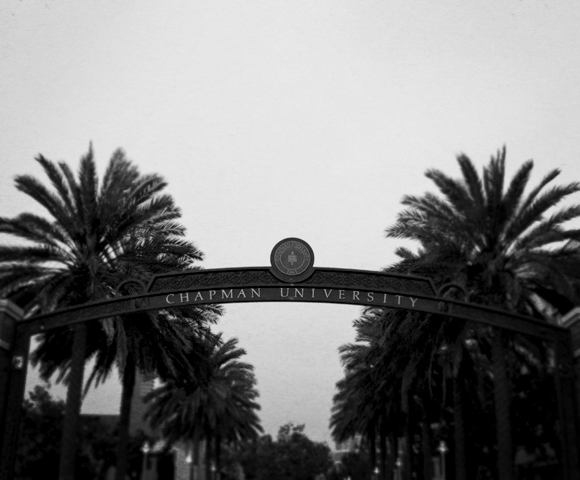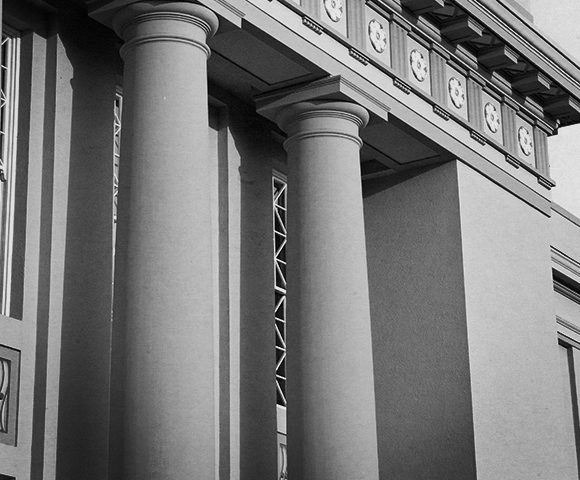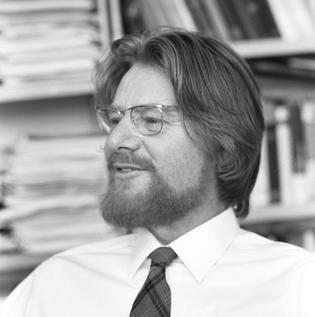
State of the University Address 2023
Watch President Daniele Struppa’s State of the University Address for an update on all that Chapman University has achieved in the past five years and what’s in store for its future! Watch here!

Next-generation superconducting qubits for quantum computing
Abstract: The world of superconducting qubits has been dominated by the transmon for a while. Over the course of more than a decade, much effort has been devoted to enhancing this circuit’s coherence times. Despite the remarkable success, we should ask: is the transmon the best we can do, and will it ultimately suffice for

Hypertwined Quantum Field Theory
Abstract: Hypertwined analysis is a refinement of general hypercomplex theories of differential operators. In the assumption that the configuration space has a hypertwined structure, I will discuss several (re)interpretations of notions and results in Topological Quantum Field Theory (TQFT), such as supersymmetry, path–integral quantization, cancellation of anomalies, et al. Particular TQFTs of interest in this

101 Fun Things to Do with a Quantum Entanglement Source
Abstract: The Quantum Information Revolution is in full swing, and entanglement — the spooky nonclassical, nonlocal connection that can be shared by quantum particles — is the key ingredient. In this talk we’ll discuss how to create (photon) entanglement, and several applications for secure communication and quantum-enhanced sensing. Time permitting, we’ll include a lesson in

Thermal Superconducting Quantum Interference Proximity Transistor: Manipulating Heat Transport Via Proximity Effect
Abstract: Superconducting materials are known to be good thermal insulators at sufficiently low temperatures thanks to the presence of the energy gap in their density of states (DOS). Yet, the proximity effect allows to tune the local DOS of a metallic wire by controlling the phase biasing imposed across it. As a result, the wire

Demonstration of algorithmic quantum speedup
Abstract: Despite the development of increasingly capable quantum computers, an experimental demonstration of a provable algorithmic quantum speedup employing today’s non-fault-tolerant devices has remained elusive. In this talk, I will report on the first demonstration of such a speedup, quantified in terms of the scaling of time-to-solution with problem size. The demonstration is based on

Many-body quantum vacuum fluctuation engines
Abstract: Owing to their wave-like nature, quantum systems can never be truly at rest. Indeed, the value of some observables—those which do not commute with the Hamiltonian—fluctuate, even when the system is in its ground state. Following major advances in the manipulation and control of quantum systems, the prospect of extracting useful work out of these

Multilayer Graphene as an Endoreversible Otto Engine
Abstract: Graphene is perhaps the most prominent “Dirac material,” a class of systems whose lattice structure gives rise to charge carriers that behave as relativistic massless fermions. This emergence of relativistic behavior at laboratory scale energies makes graphene an ideal environment for probing the thermodynamics of relativistic quantum systems. For multilayer graphene, consisting of several

This year's Nobel Prize in Physics
By Professor Matt Leifer The Institute for Quantum Studies congratulates Alain Aspect, John F. Clauser and Anton Zeilinger for receiving the 2022 Nobel Prize in Physics https://www.nobelprize.org/prizes/physics/2022/summary/. The citation says that they are awarded the prize “for experiments with entangled photons, establishing the violation of Bell inequalities and pioneering quantum information science” Personally, I am

The Institute for Quantum Studies congratulates the 2022 winners of the Nobel Prize in Physics
The Nobel Prize in Physics 2022 was awarded jointly to Alain Aspect, John F. Clauser and Anton Zeilinger “for experiments with entangled photons, establishing the violation of Bell inequalities and pioneering quantum information science”. The Institute for Quantum Studies congratulates these scientists. We are delighted that the Nobel committee has recognized their ground breaking work